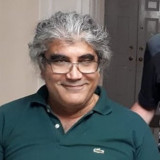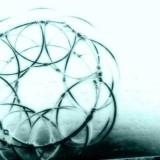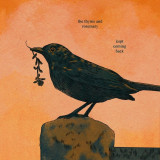Droll Essencial Questions
-
BOB GALLO
3 years ago, updated 3 years agoLet expand a little bit::
What is the difference between equilibrium and music ( musical)??
What is the difference between music and poetry??
Is music as mathematical as the mathematic is musical??
Is life more physical or musical??
What is the nexus between heart and distance?? -
Everlasting replied to BOB GALLO
3 years ago, updated 3 years agoWhat is the difference between equilibrium and music ( musical)??
^ music balances us but not necessarily puts us in equilibrium. It can sometimes. But for the most part, it leave us with a positive balance or negative balance. Lol
Difference between music and poetry? I’m not sure. Poetry puts me in equilibrium but also in balance. It can stabilize me too.. Music puts me in balance not necessarily in equilibrium. Hmm
Hmm. . What’s the mathematics in music? Idk like notes?
Is life more physical or musical? Both
I’m not sure about the last question. What do you mean by heart? Passion? Organ? Something else?
What about distance? What do you mean by that? -
BOB GALLO replied to Everlasting
3 years ago, updated 3 years agoyou said: "I’m not sure about the last question"
Everything in distance tends to shrink and disappear, but heart. Love is beyond the time and apace. That is why they say, where God is, time and space do not exist.
The musical inscriptions are mathematically acclaimed, and the mathematical patterns are musically illustrious. Even though these two are opposite poles of the human cognizance. One is in the very end of logic and science and the other in the very end of emotion and art. -
Sunshine replied to BOB GALLO
3 years ago, updated 3 years agoOn top of the many things we need on this site, we need a love/like button for posts like this.
"Everything in distance tends to shrink and disappear, but heart. Love is beyond the time and apace. That is why they say, where God is, time and space do not exist." -
Poet on the Piano
3 years agoI love this discussion thread, much like the other one, too! Going to share the first things that come to my mind:
What is the difference between equilibrium and music ( musical)??
- I feel like there's an important difference in this. Some music seeks the equilibrium, and the unity of instruments and voice and melody to almost transcend the spirit. While other music (the only thing I can think of now is the album Fetch the Bolt Cutters by Fiona Apple) is more cacophonous and human-sounding and raw in a way that can be jarring for people who are only listening to music for the melodies. Music can be un-melodic, more experimental, off-setting equilibrium we expect but finding an equilibrium that speaks more to the human experience.
What is the difference between music and poetry??
- Hmm. I kind of want to go down the route of saying not all music is poetry and not all poetry is music, as it depends on those receiving it. To some, a simple pop song may seem shallow and just entertaining, with nothing else to offer... but to someone else, that pop song might be poetic in ways that speaks to the individual. Similarly, not all poems may inspire people and carry a rhythm but other people may find and chase the music in every line and stanza, regardless of the author.
Is music as mathematical as the mathematic is musical??
- It can be. Music can be free-flowing and improvisational, or it can be technical and planned ahead. But there is no requirement that music be mathematical or a certain way; it just is.
Is life more physical or musical?
- This is tricky. If anything, I'd say life is more mental, but I know that's not an option in the question. Unless you count "physical" as relating to the body, not separate from the mind. At times, I'm convinced to say life is more physically demanding, and the effort we exert just to keep it all going. But then, life is musical even in the silences. There are rhythms of moments where we feel moved, and the idea of something being musical can span beyond our understanding of song or dance.
What is the nexus between heart and distance??
- The heart can't always measure distance, or at least (trying to think how to word this) isn't dependent on the distance. We see love and relationships mend and grow and learn despite the distance. The heart knows how to reach others and share its truth without the obstacle of distance. So in a way, heart and distance work together to become more than simple measurements. -
BOB GALLO replied to Poet on the Piano
3 years ago, updated 3 years agoAbout the first question: You are right on the money, and correct, drawing the line between jarring and the "musical" music. One could conclude that some compositions are not musical, then one would wonder: Haha, why do they call it music if it is not musical? The answer is relativity. All the compositions are relatively harmonic, but like in the circus, even the most crooked mirrors, how distorted, still reflect reality. So, any music IS musical but to the certain extends. Amadeus or Beethoven might be the most musical and the one that you named is perhaps the least.
Second::
In the sociology of art, we learn music and poetry born simultaneously, because the recognition of sounds, learning the intricacy of tones when uttering them in group (hunting, working....) This, made them recognize the occasional rhythm that in the thousands of years had found its way and turned to music and song. Poetry is the transcendent song writing. But poetry eventually learned, “song” is the marriage of these two genres: music and poetry, yet in essence indeed poetry has different duty and is greatly responsible for the "inner" music, that hardly could be heard or seen, but only could be comprehended and felt.
Poetry is obviously different to every other genres of art, yet partially contains and carries all of them: like painting. Poets are often great painter.
But as dominant as the music is, in compare to all the other genres of art, poetry pleasurably suffered the worth case of slavery to the music.
Third::
Actually music is very mathematical: It is arithmetically acclaimed in the numbers of notes their clusterization, distances of repeating, equality of the measures.... Poetry also is geometric in the position and the pattern of the notes being plotted. The Light-Dace in discos, or in devices planted in sound systems and...., corresponds to the music, is musical and harmonious, therefor are the illustration of the mathematical tendencies of the music. And the exactness in music is very much like mathematic. There are a lot more evidences that I cannot recall at the moment.
Fourth::
This question like the others is very gross. It needs imaginative people like you gals to figure their merit. By physic here I mean the physicality, the harsh random side of the material world, always stealing our attention to undermine the rhythm, the harmony in that material world. So, even harmony (music) is the base of physical world, the physical world also is always distracted by imbalance and harsh realities.
But as you mentioned, even that harshness is a part of some often unforeseen harmony and musicality. This is always the case.
The last one:: Again you are correct, I just wanted to emphasize that heart and distances are contrasted, and paradoxical, yet you indirectly managed to see, there, also is harmony (music,) between the opposites: high and low keys. Actually, that contrast indeed is the cause of musicality if they’re juxtaposed correctly.
Elliott, you are good in this (dialectic,) seeing beyond the contrast and the essentiality of their playfields.
Such a dualism that corresponds musicality!!
Thanks Elliott for your wonderful insights.




